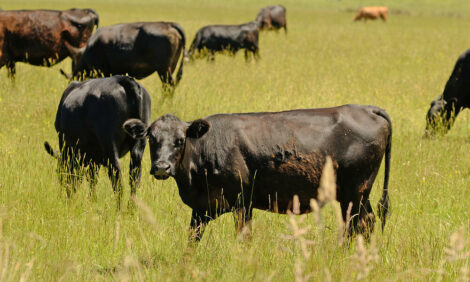



Optimism Increases For NZ Farmers
NEW ZEALAND - Increasing optimism among New Zealand’s beef producers has seen the country’s rural confidence levels climb in the first months of 2010, the latest quarterly Rabobank Rural Confidence Survey has shown. Dairy farmer confidence also remained high.The latest survey – completed this month – shows 34 per cent of the country’s farmers expect the rural economy to improve in the next 12 months. While this was up only slightly on the 32 per cent with that expectation last survey, the number of farmers expecting conditions to worsen fell from 26 per cent previously to just 11 per cent this survey.
Rabobank general manager Rural New Zealand Ben Russell said the survey showed much of the improvement in rural confidence had been driven by sheep and beef farmers, who had a more optimistic outlook about conditions in, and prospects for, their sectors.
“There have been several factors working in the favour of beef producers,” Mr Russell said. “The dollar fell slightly during the survey period, while there has also been good news in terms of commodity prices in these sectors.”
Beef prices have improved earlier than usual during the peak processing season from the lows experienced pre-Christmas.
Dairy farmer confidence had remained strong with 94 per cent expecting the agricultural economy to either stay the same or improve, compared with 88 per cent in the previous survey.
Mr Russell said higher international dairy commodity prices had improved the milk price since the start of the 2009/10 season. The survey was undertaken before Fonterra’s April announcement of the increase to payout, which further confirmed the improving market trend.
Of those farmers surveyed who expected conditions to improve, rising commodity prices were nominated as a key reason (cited by 37 per cent). Improving overseas markets/economies were also a significant factor (nominated by 21 per cent).
Mr Russell said the survey had shown that 31 per cent of the sheep and beef farmers and 46 per cent of the dairy farmers expecting conditions to improve had nominated rising commodity prices as a reason. Of those farmers expecting the agricultural economy to worsen, a large number laid the blame on the high dollar (nominated by 39 per cent) and rising input costs (24 per cent).
Mr Russell said drought also factored as a concern (mentioned by 14 per cent).
“This is not surprising considering the conditions we have experienced in Northland and parts of Waikato, Canterbury and Otago,” he said.
Mr Russell said drought conditions in these regions also went towards explaining the marked variances seen between different regions this survey.
“The regional differences were noticeably pronounced this time, with 33 per cent of pessimistic upper North Island survey respondents citing drought as a concern, while on the other hand 14 per cent of optimistic farmers in the lower South Island credited good seasonal conditions as reason for the economy improving,” he said.
In terms of farmers’ individual operations, the Rabobank survey showed farmers were slightly less optimistic about the performance of their own businesses compared to the agricultural economy in general. Overall, 35 per cent of farmers expected their own business performance to improve in the next 12 months, although 15 per cent expected it to deteriorate.
The latest Rabobank Rural Confidence Survey showed a modest improvement in New Zealand farmers’ investment intentions – with 88 per cent expecting to maintain or increase their farm business investment, up from 87 per cent in the previous survey.
Mr Russell said investment intentions were strongest among dairy farmers with 93 per cent expecting to maintain or increase their farm business investment. This level of expected investment had increased from the low of 58 per cent seen in May 2009 and was likely to indicate the adjustment many dairy farm businesses had undertaken over the past 12 months. “It is also likely to be a reflection of the improved milk price,” he said.
The survey showed an increasing number of farmers expected the value of their land to remain static – 56 per cent compared to 52 per cent with that view in the previous survey.
However, more than a quarter of those surveyed (26 per cent) believed the value of their land may decrease in the coming 12 months (compared to 23 per cent previously).
Mr Russell said sheep and beef farmers were the least optimistic about land prices with 34 per cent expecting a decrease versus 13 per cent expecting an increase.
“Dairy farmers were evenly split with 20 per cent expecting land values to increase and the same number expecting them to decrease,” he said.
TheCattleSite News Desk


